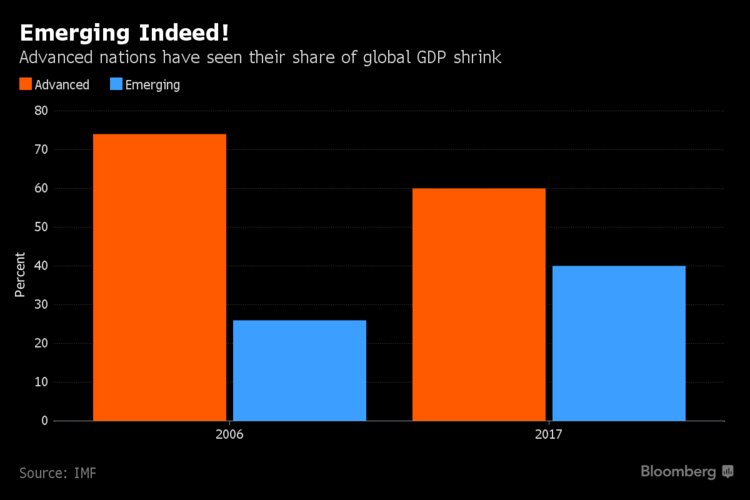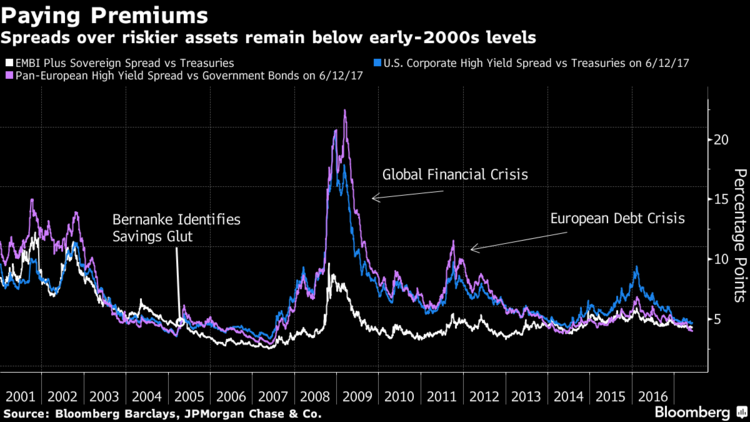There’s a dark cloud building behind the world’s best period of synchronous growth among developed and emerging economies this decade -- one that in time could rain down volatility in global markets.
The problem, identified by strategist and hedge fund manager Stephen Jen, is a deepening imbalance in the lack of new safe-haven assets as the world’s output expands.
China and other developing nations are accumulating wealth, but failing to create sophisticated local markets that feature their own risk-free instruments. That’s left a dangerous reliance on U.S. Treasuries, according to Jen’s argument, perpetuating a bond bubble and pushing investors into riskier assets.
It’s a tweaked version of the “savings glut” argument that then-Federal Reserve Governor Ben S. Bernanke put forward in 2005 to explain why American borrowing costs were stuck at low levels even as the U.S. hiked interest rates. These days, current account imbalances among the U.S., China and Japan have come down, and Asia’s biggest economies are carrying higher debt loads, undermining the idea that there’s too much savings.

Instead, the problem is that emerging markets haven’t yet been able to develop assets that investors are willing to hold as stores of value and collateral when times get tough. Doing that requires strong levels of confidence in the rule of law, equitable regulation and belief that money can be withdrawn by the investor whenever needed.
“The local capital markets in EM still lack the sophistication to match the real sectors in these economies,” Jen and colleague Nicolo Bandera wrote in a note last week. The continued growth of emerging markets while their financial systems lag behind produces “a situation whereby the genuine safe-haven assets such as the U.S. Treasuries, German bunds, and the British gilts become increasingly rare and in short supply,” they wrote.
Fed and other central bank purchases of their own government bonds have even further limited the supply of such assets, Jen and Bandera highlighted. The Fed is widely forecast to raise borrowing costs for the second time in 2017 this week, with attention zooming in on plans to dial back its $4.5 trillion balance sheet.

China, as the world’s second-largest economy, offers the best chance to develop an alternative to the U.S. Treasuries market, though its capital controls have left foreign investors wary to take full advantage of new avenues to invest in its government bonds.
A history of punishing foreign countries that take actions the Communist leadership dislikes -- such as when South Korea moved to allow a U.S. missile-defense system -- could also play into foreign and domestic investor reluctance to embrace Chinese assets as a haven.
“China should – no doubt – develop a more liquid and open government bond market,” said Alicia Garcia Herrero, chief Asia-Pacific economist at Natixis SA in Hong Kong. Doing so would offer an alternative to Treasuries and help internationalize the yuan, she said.








